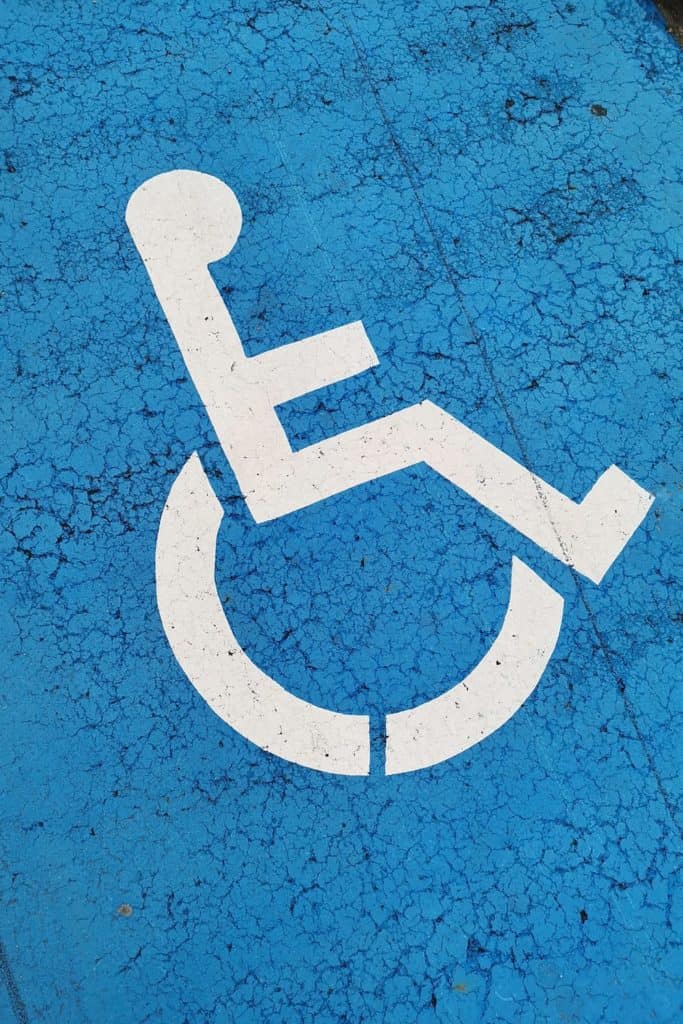First off, what does it mean to be ADA Compliant?
ADA stands for the Americans with Disabilities Act. In September 2010 it was published by the Department of Justice (DOJ) in order to bring forth regulations that ensure information and technology is accessible to all. This was specifically designed to protect Americans with disabilities who historically have not had equal access to public spaces and education. The reach of this program includes access to buildings, computer hardware, software, and all documentation. ADA standards must be followed by “places of public accommodation.” While this refers to classrooms, institutions, and workplaces, it also refers to cyberspace- (the internet).
The Americans with Disabilities Act (ADA) came from the Rehabilitation Act, which was created in 1973. This mandates institutions of higher education to ensure college students with disabilities have equal access to academic resources and student life. All public and private nonreligious schools are included, as long as their students or the institution receive federal financial aid.
Within this set of regulations students may not:
· Be forced to disclose whether or not they have a disability
· Be rejected access admission based on their disability
· Be excluded from anything programmatic including classes or activities as a result of their disability
The same rules apply for admission with or without a disability, meaning you will be denied entrance if you do not meet academic or other qualifications, as long as the denial is not a result of the student’s disability status. Students, therefore, must still take the required prerequisites and achieve the necessary test scores required for admission.
Understanding Disability Disclosure
Students are never required to disclose their disability status. It is a personal choice to do-so, however, choosing not to means the institution does not have to provide college disability accommodations. This includes adaptive technology, appropriate housing accommodations, additional testing time, among other resources accessible through the disability resource center. Therefore, making the choice to not disclose a disability will most likely disadvantage the student.
How to disclose a disability to receive accommodations for college students with learning disabilities
Documentation from a doctor or other medical professional explaining the implications of the disability will suffice as far as disability disclosure.
The first point of contact in terms of disclosure should be a coordinator or disability officer at the campus Disability Resource Center. In the case where there is no Disability Resource Center, make an appointment with the dean of students or an academic advisor. The office in charge of disability advocacy and resources or the dean should be responsible for disclosing the student’s disability to all of their professors at one time in a non-stigmatizing and professional manner. The goal of this method is to prevent miscommunications and to start a thread of official documentation.
When meeting with the coordinator of disability services or the dean it is important to have all of the necessary paperwork on hand.
This can include:
· A high school IEP
· Medical evaluations
· A treatment plan from a medical professional (if applicable)
A list of accommodations for students with disabilities in college can include the following:
- Help taking notes in classes
- Living in accessible housing
- Specific needs for test-taking
There are requirement differences in high school versus college when it comes to receiving disability services. In high school, the school itself is responsible for evaluating and helping the student identify the disability at hand. In college, the student is solely responsible for advocating for themselves in terms of reporting their disability and asking for the services they need.
If the student does not disclose their disability they may not request ADA protections or call out discrimination on campus.
Can Colleges Refuse Requests for Accommodations?
There are some reasons that institutions can deny requests including:
· If an accommodation would financially burden the school
· If an accommodation would alter programmatic integrity, or the institutions standards
· Schools are not required to provide personal care attendants, personal devices, or personal readers- and if requested, a denial from the school is not prohibited
If the school cannot adequately provide the students with the provisions they requested, likely they will offer an alternative accommodation that will allocate a similar outcome. A student is never required to accept accommodations offered.
College students with disabilities rights’ need to be taken seriously. The first step is ensuring that they know their rights.
What if a Student is Being Discriminated Against On Campus?
It is important that as soon as possible the student:
· submits a formal complaint or appeal to the dean of students or disability resource center.
· Submits a complaint with the Office of Civil Rights through the Department of Education
The Office of Civil Rights has a comprehensive complaint form that the student can fill out, or submit their own letter.
The student can take it a step further by submitting a complaint with the US Department of Justice. The next form of escalation, if the institution does not make any changes is filing a lawsuit with the ADA.
Related:
The Complete Guide to College for Students with Disabilities
What is a TPSID?
Can I Go to College with a Learning Disability?
